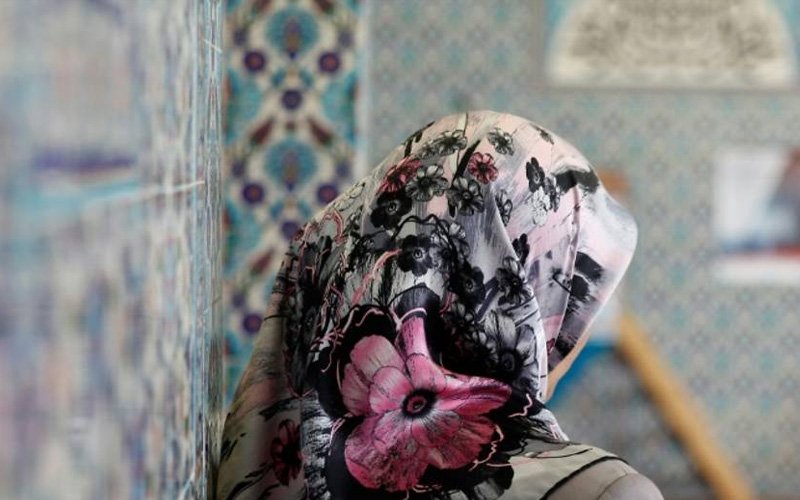AhlulBayt News Agency (ABNA): Every day before she starts her shift at a government hospital in Singapore, Farah removes her hijab - the Islamic veil she has worn since a teenager.
Although minority Muslim women can freely wear the hijab in most settings in Singapore, some professions bar the headscarf – and a recent case has triggered fresh debate on diversity and discrimination in the workplace.
Now Farah has joined a growing number of Muslims – who account for about 15% of Singapore’s 4 million resident population – calling for the ban to end, with an online petition gathering more than 50,000 signatures.
“They told me I can’t work here if I wear the tudung,” said Farah, using the local Malay term for hijab, as she recounts her job interview two years ago for a physiotherapist position.
“I felt a sense of helplessness, it’s unfair. Why has the tudung become a barrier for us to look for jobs?” asked the 27-year-old, who used a pseudonym for fear of reprisals at work.
She accepted the job eventually but has to remove her headscarf whenever she is at work.
Farah’s case is not an oddity.
There was outcry last month when a woman was asked to remove her hijab to work as a promoter at a local department store.
Halimah Yacob, the country’s first female president who herself wears the hijab, said there is “no place” for discrimination when asked her view of the case.
The store reversed its policy, but many took to social media pointing out restrictions remain on wearing the hijab for some civil servants, including policewomen and nurses.
The debate surrounding the hijab is not new in Singapore, a modern city-state which takes pride in its multicultural and multiracial background. The country is predominantly ethnic Chinese, many of whom follow Buddhism or Christianity.
In 2013, then Muslim affairs minister Yaacob Ibrahim said wearing a hijab at the workplace would be “very problematic” for some professions that require a uniform.
The following year, Prime Minister Lee Hsien Loong said the hijab issue was about “what sort of society do we want to build in Singapore”, according to local media reports.
Singapore’s police force and the health ministry did not respond to repeated requests seeking comment.
Referring to the department store case, Singapore’s president said discrimination in the workplace was “disturbing” as it deprives a person from earning a living.
“People should be assessed solely on their merits and their ability to do a job and nothing else,” Halimah wrote on her Facebook, which attracted more than 500 comments.
“During this COVID-19 period when concerns over jobs and livelihoods are greater, incidents of discrimination exacerbate anxieties and people feel threatened,” she added.
/129
Although minority Muslim women can freely wear the hijab in most settings in Singapore, some professions bar the headscarf – and a recent case has triggered fresh debate on diversity and discrimination in the workplace.
Now Farah has joined a growing number of Muslims – who account for about 15% of Singapore’s 4 million resident population – calling for the ban to end, with an online petition gathering more than 50,000 signatures.
“They told me I can’t work here if I wear the tudung,” said Farah, using the local Malay term for hijab, as she recounts her job interview two years ago for a physiotherapist position.
“I felt a sense of helplessness, it’s unfair. Why has the tudung become a barrier for us to look for jobs?” asked the 27-year-old, who used a pseudonym for fear of reprisals at work.
She accepted the job eventually but has to remove her headscarf whenever she is at work.
Farah’s case is not an oddity.
There was outcry last month when a woman was asked to remove her hijab to work as a promoter at a local department store.
Halimah Yacob, the country’s first female president who herself wears the hijab, said there is “no place” for discrimination when asked her view of the case.
The store reversed its policy, but many took to social media pointing out restrictions remain on wearing the hijab for some civil servants, including policewomen and nurses.
The debate surrounding the hijab is not new in Singapore, a modern city-state which takes pride in its multicultural and multiracial background. The country is predominantly ethnic Chinese, many of whom follow Buddhism or Christianity.
In 2013, then Muslim affairs minister Yaacob Ibrahim said wearing a hijab at the workplace would be “very problematic” for some professions that require a uniform.
The following year, Prime Minister Lee Hsien Loong said the hijab issue was about “what sort of society do we want to build in Singapore”, according to local media reports.
Singapore’s police force and the health ministry did not respond to repeated requests seeking comment.
Referring to the department store case, Singapore’s president said discrimination in the workplace was “disturbing” as it deprives a person from earning a living.
“People should be assessed solely on their merits and their ability to do a job and nothing else,” Halimah wrote on her Facebook, which attracted more than 500 comments.
“During this COVID-19 period when concerns over jobs and livelihoods are greater, incidents of discrimination exacerbate anxieties and people feel threatened,” she added.

